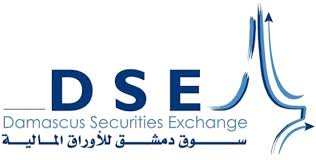The Damascus Securities Exchange was officially reopened on Monday in a government ceremony attended by Finance Minister Mohammad Yusr Barniya, high-ranking economic and government officials, and a number of investors and businesspeople. The relaunch marks the latest attempt by Syrian authorities to signal a new phase of economic revival in the country’s post-Assad transition.
In his remarks at the opening, Minister Barniya described the relaunch as “a clear message that Syria’s economy is moving toward recovery and growth.” He also announced that the exchange would soon transition into a private company, stating that it would become “a real hub for the development of the national economy,” in line with the government’s digital transformation agenda.
Barniya added that Syria’s economic vision for the coming phase is founded on principles of fairness, expanding the private sector’s role, fostering investment, combating poverty, and generating job opportunities. He emphasized that the Ministry of Finance is committed to streamlining economic procedures and cultivating an environment conducive to sustainable growth.
Basel Asaad, Executive Director of the Damascus Securities Exchange, called the reopening a “historic day for Syria” and said that the exchange is ready to play a greater role in a “new Syria” with broader and more significant investment opportunities. Despite limited resources, he stressed that his team has “fulfilled its duties with transparency and preserved investor rights,” expressing confidence in their ability to keep pace with future developments.
A Limited Past – and Uncertain Future
The Damascus Securities Exchange was originally launched in 2009. While it includes major private banks and insurance firms, its portfolio remains modest, featuring only a handful of industrial and service companies, along with the mobile operators MTN and Syriatel.
Despite its longevity, the exchange has had limited economic impact. Prior to its closure six months ago, average daily trading volumes barely exceeded $100,000—an indicator of its marginal role in the national economy.
According to economic analyst Yahya al-Sayed Omar, for the exchange to add real value to the economy, it must be accompanied by “broad financial liberalization, updated regulatory frameworks, investment incentives, and robust transparency and governance standards.” Without these reforms, he warned, the exchange’s effectiveness will remain limited.
Who Is Monitoring for Money Laundering?
Minister Barniya previously claimed that the Ministry of Finance has taken steps to ensure compliance with anti-money laundering (AML) regulations and prevent criminal exploitation of the financial market. He also promised a comprehensive overhaul of existing financial laws to align them with international standards.
However, Barnya has not clarified how these efforts will be enforced, particularly given that some listed companies—such as Syriatel—remain under international sanctions. Many others are still owned or controlled by figures linked to the former regime and were not included in recent sanctions relief measures. This raises doubts about the credibility of the government’s commitment to AML compliance and the potential for the exchange to once again serve as a vehicle for illicit financial activity, as it did under Assad.
Younes al-Karim, director of the Iqtissadi platform, questioned how companies owned by regime-affiliated individuals—some of whom are still subject to the Caesar Act—can credibly comply with AML laws while maintaining stakes in these firms. He argued that without transitional justice or meaningful economic oversight, there is little reason to believe these companies will respect new regulatory standards, especially given continued manipulation in Syria’s monetary and trade systems.
For his part, Sayed Omar emphasized that the issue of regime-linked ownership must be addressed through the judiciary, especially in cases where companies or their executives face credible accusations. He also noted that the stock exchange itself could play a role in tackling both AML concerns and legacy regime influence through rigorous inspections, audits, and review of financial records in cooperation with the judiciary.
A Test for the New Economy
While Syrian officials present the reopening of the Damascus Stock Exchange as a turning point in national recovery, experts argue that its success depends on much more than trading volumes. Genuine reform, legal accountability, and institutional integrity will be essential if the exchange is to function as a legitimate platform for investment—and not as a cover for laundering wealth amassed during the war.
This article was translated and edited by The Syrian Observer. The Syrian Observer has not verified the content of this story. Responsibility for the information and views set out in this article lies entirely with the author.


